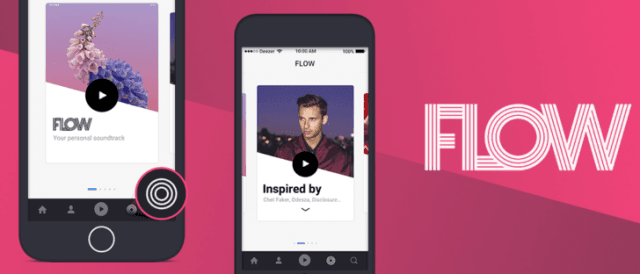In an online music streaming world seemingly dominated by Spotify, Deezer is a global music subscription service that’s relatively lesser known in Indonesia. But that’s what they want to change, as they eye the market more aggressively.
Deezer, in fact, calls itself an early pioneer in music streaming, having launched in France in 2007. Today they are present in over 180 countries with a diverse library of 53 million tracks and 14 million monthly active users. The music service is available through a wide range of devices, including mobile, desktop, tablet, smart TV, car audio and through high-end wireless speaker systems.
In a conversation with Saviq Bachdar from Marketeers, Daud Aditirto, the right-hand man in strategy and operations of the company in Asia Pacific, opened up about Deezer’s continuing progress in the local market, the role of localized content, the need to work with network operators to improve the company’s margins, and also how tight the competition is. Let’s read, not listen.
Please talk about Deezer and its business in Indonesia.
Deezer first entered the Indonesian market in 2012 when subscription-based music streaming was nascent and piracy was rampant. But streaming in the country was on the rise, thanks to the popularity of YouTube and as many Indonesians were beginning to consume music through their mobile devices, we felt that the market was ready for us to launch a subscription-based music streaming service.
Earlier this year (2018), Deezer entered into a partnership with Hutchison Tri (3). This is the first partnership with the Three Group in Asia, following our partnerships with the Three Group in Europe, wherein we collaborate in the United Kingdom, Ireland, and Sweden. The local partnership in Indonesia offers Tri mobile subscribers a zero-rated mobile data plan where users can stream all Deezer music through an easy mobile payment system.
What makes Deezer unique?
Deezer’s unique differentiator is FLOW, a personalized soundtrack that uses smart data and recommendations from Deezer editors around the world and plays a steady stream of all the music that you want to hear, along with fresh new recommended tracks.
Do you believe in localization to win in a market?
We do. Music fans in Indonesia have access to music from all major global international labels, as well as major labels from Indonesia. The rich and diverse content from our library allows Deezer to curate numerous playlists matching different local tastes and specific occasions.
For example, to commemorate the Muslim holy month, we launched a dedicated Ramadhan as well as a Hari Raya channel. Given that over 87% of Indonesians are Muslim, we wanted to help those that were fasting and observing the holy month with specially curated playlists and Qu’ran recitals to help in their daily journey.
Do you think the subscription model can work here?
Over the years, we’ve seen a growing acceptance of paid music streaming services in Indonesia. The latest IFPI Global Music Report 2018 showed that digital contributes to 93% of total recorded music revenue in Indonesia, of which 21% comes from streaming subscription, up 65% from the previous year.
With a population of 260 million, Indonesia’s music revenue per capita is still one of the lowest in Asia Pacific. But for a nation where music has always played a significant role in its culture setting and a country with close to 200 million active smartphones, there is clearly an enormous potential for the mobile-first generation. The adoption of smartphones has led to explosive growth in areas of e-commerce, ride-sharing, and travel.
Although Indonesians spend a lot of time on their mobile devices, credit card penetration is still relatively low. To better match the user behavior, we offer more payment options either via ATM, internet banking or topping up with pre-paid options that can be purchased at convenience shops such as Alfamart, Indomaret and e-Wallet (Doku).
Deezer officially launched in Indonesia in 2012 featuring Slank and BigBang. Why do you think people have started recognizing the app just now?
We admit that our former CEO strategy was quite different. We were just set to make sure everybody around the world could enjoy music through Deezer. So, we expanded rapidly; currently we are available in more than 180 countries. We believed that was quite impressive. But if you look closely, the level of engagement in each country was lame.
But we have a new CEO and a different strategy is introduced. In every country we tap in, we make sure that we can engage the users etter and deeper. Indonesia is a potentially crucial market in APAC that we need to focus on. Besides my country, I also handle Deezer’s operations in Japan to Australia and New Zealand.
India is also a potential market. But you know, in India, if you don’t have a Bollywood catalog, don’t say you can become mainstream. Moreover, the price is quite expensive to acquire the catalog and the selling price is very cheap. Unless you invest a lot and you’re in for a very long game, I don’t think it’s a good investment. I think at present we are choosing markets where it’s a win-win for both, users and the company.
What are your key markets then?
The key markets at the moment are Japan, Indonesia, Singapore, Malaysia, The Philippines, Thailand, and Australia. I focus on these seven countries.
How big is APAC business for Deezer?
It’s still not substantial. We just launched ourselves in Asia. It contributes about 10%. The biggest market globally is Europe. And the fastest growing market is Latin America. We know, for example, that Spotify is very mainstream in the U.S. But, Latino make up 17% of the total U.S population. You know Latino people; they like to dance and listen to gospel music. We specialize in that kind of music, and have tried to bring this concept to Brazil. The result is, we are becoming very strong in the country, even bigger than Spotify.
So, what are your plans for Indonesia?
The next wave is we’re going to invest a lot more in brand awareness. So, we will have a new soft-launch by partnering with Tri. I believe it would help us a lot. If you look at the users of Tri, it’s almost millennials. So we want to create brand awareness among the youngsters. By collaborating with Tri, we want them to know that you can enjoy music without worrying too much about money. You can pay monthly, weekly, or even every three days.
How intense your subscribers are in actually using Deezer nowadays?
In general, Deezer’s active users stream on average 26 times per day and listen for nearly 1.5 hours per day. These figures are similar to what we are seeing locally in Indonesia. Globally, most active users are of 25- 34 years age-group, followed by 18-24 years, but in Indonesia, it’s the reverse, where young adults make up for most active users.
Talk a bit about the competition landscape. Who are your major competitors in the industry?
Music streaming is a very competitive landscape with global players including Deezer, Spotify and Apple Music vying for a slice of the growing markets around the world. In Asia Pacific, we have regional players such as JOOX and KKBOX, and on the local level, we have Langit Musik, which is backed by Indonesia’s largest telco, Telkom Indonesia.
Deezer’s main differentiation is focusing on personalization. When it comes to music, we understand that people’s tastes are very different and this is why we have created Flow, a personalized soundtrack system which uses a combination of smart data, unique algorithms and human curation to recommend songs that are custom-tailored for each user, based on their individual tastes. Flow plays a continuous stream of familiar favorites and helps users discover new unheard tracks.
For audiophiles, Deezer also offers Deezer HiFi, a high-fidelity CD quality FLAC in lossless quality. Deezer HiFi audio’s quality is the way music is meant to be heard at 16-bit/44.1kHz, so music lovers can hear the sound that is often lost in regular streaming. Last year we launched Deezer HiFi in Japan, making Deezer the first streaming service to offer lossless CD quality audio to music lovers in the world’s second largest market for recorded music.
What are some interesting facts you’ve learned about Indonesian consumer behavior in terms of the way they listen to music?
In Indonesia, pop is the most popular genre, followed by Rock and Alternative music. Rock fans are more likely to access their favorite tracks or albums directly versus our Pop listeners, who prefer to listen to their favorite tracks through playlists.
Indonesian music fans generally prefer listening to local music, as local rock band Sheila On 7 takes top spot as the most streamed artist in the country, as well as in the Rock category – for the first five months of 2018. Huge global artists also seem to be quite popular, such as British singer and songwriter Ed Sheeran, takes top spot in Pop.
Sheila On 7 and Ed Sheeran are both liked equally by male and female listeners as the top two artists, but interestingly males preferred British rock band Coldplay as the third most streamed act, while female listeners prefer to listen to the dance beats of French DJ and songwriter David Guetta, who also holds the top spot within the Dance category in Indonesia.
Regional differences in music show that most of our rock fans are based in Medan, while Pop fans reside in Bandung and dance fans are aplenty in Denpasar.
What brought you to Dezeer?
My career path has been a little bit different. I actually love music, but more as a listener. At the same time, I have always worked in startup-typical companies. First, I worked at Opera Browser, when the company first started its operations in Indonesia, I was in fact the first employee there. In Opera, we were helping more and more people get connected on their phones, especially those who didn’t own very high-tech smartphones.
After that, I moved to Facebook Indonesia and there as well, I was among the first employees to get hired. At that time, we didn’t even have an office and worked from home. At Facebook, we worked on how we could connect people to the things they love, and to their community they like.
After 4 years of working there, I was called by a head-hunter to work in a music streaming company. They didn’t even mention the company’s name. But as I love music, and I think music can bring people together, can motivate people, I thought this opportunity was very interesting.
What’s your favorite music genre?
I am a very bad example. I’m stuck in 80’s and I like rock music like Gun’s & Roses and Queen.



